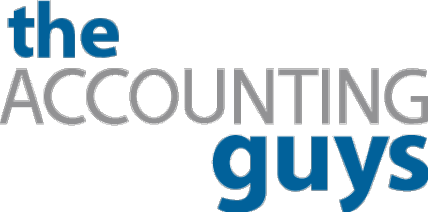The American Rescue Plan that was passed in March of 2021 included a change to how income received via PayPal, Venmo, and other payment apps will be reported to the IRS. In today’s digital world, millions of people—including both individuals and businesses—rely on these apps to make and receive payments, and these changes could impact many of these users. Here’s what you need to know about how income on these apps will be taxed starting in 2022.
Income on These Apps Is Always Taxable
First and foremost, we want to make it clear that this is not a new tax being applied to digital income. Any taxable income received via PayPal, Venmo, Zelle, Cash App, and others has always been subject to your income tax level. However, prior to this new law going into effect, these platforms were only required to report accounts with income exceeding $20,000 per year to the IRS. Now, they will be required to report users with income exceeding $600, and provide tax documents to those users as well.
Will Personal Payments Be Taxed?
This creates a difficult dilemma for users who rely on these apps to receive personal payments. Will your roommate paying you for their half of the rent each month end up being taxed? The answer to this is, thankfully, no. As PayPal states on their website: “PayPal monitors accounts to ensure that personal payments are not being used for sales of goods and services.” If you only use these apps for personal transactions like being reimbursed, sending and receiving gifts, or occasionally selling personal items, you don’t need to worry about these tax law changes.
What If I Use an Account for Business and Personal Purposes?
The situations that will face the most complexity with this new tax law are for those individuals that use these apps for both individual and business purposes. This is more common than you might think. For example, if you teach piano lessons, you might have some students who pay you via these apps. But your income from teaching piano is considered taxable income, while the personal payments you receive on these apps are not.
As we mentioned earlier, PayPal and other such apps do make an effort to monitor transactions and separate business from personal, but they’re not going to be perfect at it. This can leave you with a 1099-K that includes non-taxable income, and a potential mess to clean up.
We strongly recommend that you separate your business and personal accounts as soon as possible to avoid this situation. Simply setting up another account, or reserving one of your payment apps for business purposes, can go a long way towards simplifying your tax situation. For example, you might choose to only accept business transactions in your PayPal account, while allowing personal payments to come through Venmo, Zelle, and any other apps you may have.
Is Anything Changing for Businesses?
If you’re a small-business owner who uses these platforms to receive payment, then nothing is truly changing for you. As we already stated, this income was already taxable, and you should have been reporting it on your taxes yourself. The only difference now is that you will receive a tax document from these payment apps, and so will the IRS. In a way, this can make filing your taxes easier, since the app will be providing you with your total income for the tax year.
If you have any questions regarding this change to taxes on these apps, we invite you to reach out to The Accounting Guys. We’ll discuss your individual financial situation with you and provide you with more information and guidance on how to avoid any confusion with your PayPal, Venmo, and other income. Contact us today to schedule an appointment with one of our Provo tax preparers.
